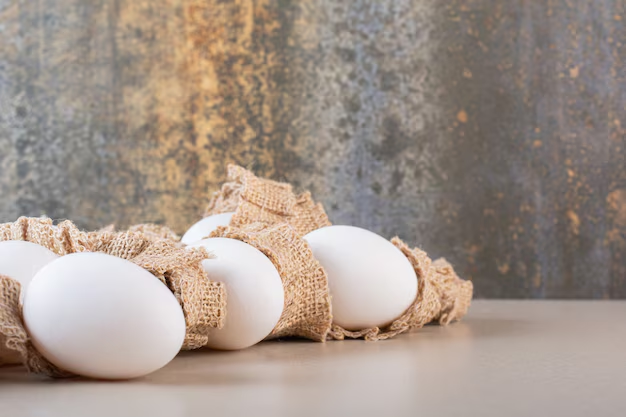How Long Can Eggs Sit Out? A Complete Guide to Understanding Egg Shelf Life Without Refrigeration
In kitchens around the world, eggs are a staple. They're versatile, nutritious, and relatively inexpensive, making them a go-to ingredient for many recipes. However, one question remains a common source of debate: How long can eggs safely last out of the refrigerator? This is especially relevant for those who purchase farm-fresh eggs or if you ever find yourself with power outage concerns. Understanding this aspect of food storage is crucial for maintaining safety, preventing waste, and making the most out of your grocery trips. Let's crack this topic wide open and explore everything you need to know about storing eggs outside of the fridge.
🥚 Understanding the Nature of Eggs
The Composition and Structure of Eggs
Eggs are made up of a delicate balance of proteins, water, fats, vitamins, and minerals. They have an impermeable shell that, when intact, acts as a natural barrier to bacteria. Under the right conditions, this shell helps protect the inner contents from spoilage. Additionally, eggs are equipped with a protective coating called the "bloom" or "cuticle," which further shields them from contaminants while maintaining freshness.
The Bloom: Nature’s Protective Layer
The bloom is a thin, invisible layer on the shell that naturally seals its pores. This coating is especially crucial for maintaining the egg's freshness when it's not refrigerated. Washing eggs, common in some commercial practices, removes this coating, making refrigeration more necessary to maintain the egg's longevity. Conversely, unwashed eggs maintain their natural barrier, offering more flexibility for room temperature storage.
Factors Influencing Egg Longevity Outside the Fridge
Temperature Impacts
Temperature plays a significant role in determining how long eggs last outside the fridge. In general, cooler temperatures slow down the growth of bacteria, which enhances the shelf life of eggs. Avoid placing eggs in direct sunlight or near heat sources, and if you're storing them at room temperature, keep them in a consistently cool area away from fluctuating temperatures.
Humidity Effects
The humidity levels also matter. High humidity can cause moisture buildup on the egg's surface, potentially cracking the shell and compromising the egg's integrity. Too low humidity, on the other hand, may lead to evaporation of moisture via the shell, affecting the egg's texture and freshness. Maintaining a balanced environment is crucial for optimizing room temperature storage.
The Role of Time
The longer eggs remain unrefrigerated, the higher the risk of spoilage or contamination. Eggs can last safely for a few days at room temperature in many regions, depending largely on the conditions mentioned above. However, it's always a good practice to use eggs sooner rather than later if kept out of the fridge.
🌎 Regional Practices and Norms
Comparing Global Standards
In many parts of the world, such as Europe and Asia, room temperature egg storage is the norm. Eggs sold in these regions are often unwashed, allowing the bloom to provide natural protection. In contrast, in places like the United States, where eggs are often washed and sanitized, refrigeration becomes essential soon after purchase for maintaining safety.
The Farm Fresh Factor
Farm-fresh eggs, often unwashed and straight from local sources, retain their protective bloom. If you've sourced eggs directly from a farm, they can be kept at room temperature similarly to international practices. However, once they enter the commercial supply chain in other regions, washed and sanitized, refrigeration is vital.
Signs of Spoiled Eggs 🛑
Knowing how to identify a bad egg is equally crucial. Here are some commonsense checks:
- The Sniff Test: If an egg emits an unusual or sulfur-like odor once cracked, it's best to discard it.
- The Float Test: Fill a bowl with water and gently place the egg in it. Fresh eggs typically sink and lay flat on the bottom. Eggs that float to the surface are stale and likely spoiled.
- Visual Inspection: Check for any cracks or unusual discoloration, both of which may indicate that the egg isn't safe to eat.
Keeping Eggs Fresh: Practical Tips and Tricks
Practical Egg Storage Tips 🗒️
- Buy Local and Fresh: Whenever possible, purchase eggs from local markets or farms where you can ensure they haven't been washed yet.
- Handle with Care: Avoid dropping or bumping eggs, as this can crack the shell and break the bloom barrier.
- Rotate Stock: Use older eggs first, ensuring that you're consuming them before they spoil.
- Labeling: Date your purchases, ensuring you're always aware of how long you've had them.
Storing Eggs During Power Outages ⚡
During power outages, you can follow these suggestions to keep your eggs fresh:
- Insulate the Eggs: Wrap them in a towel or blanket to reduce temperature changes.
- Use Ice Packs: If available, place ice packs near the eggs to extend the chilling effect.
- Consume Quickly: Plan meals around using your eggs first to mitigate potential spoilage.
A Quick Reference Guide: Egg Shelf Life at a Glance
To make the most of egg storage, here's a handy table for quick reference:
| Condition | Optimal Shelf Life | Notes |
|---|---|---|
| Refrigerated, Store-Bought | 3-5 weeks | Washed: Must be refrigerated |
| Unrefrigerated, Farm-Fresh | Up to 1 week | Keep smelling and checking for mold |
| Room Temperature | 2-3 days (with bloom) | Keep cool and minimize temperature shift |
Empower Yourself with Egg Knowledge
Knowing how to store eggs effectively allows you to enjoy their benefits without the fear of spoiling or wasting them. Whether you're navigating local practices or adapting to power outages, understanding the nuances of egg preservation can add to culinary confidence and safety. Embrace these tips, listen to what your senses are telling you, and let eggs continue to be a wholesome, versatile staple in your kitchen, no matter where they reside. 🥚✨

